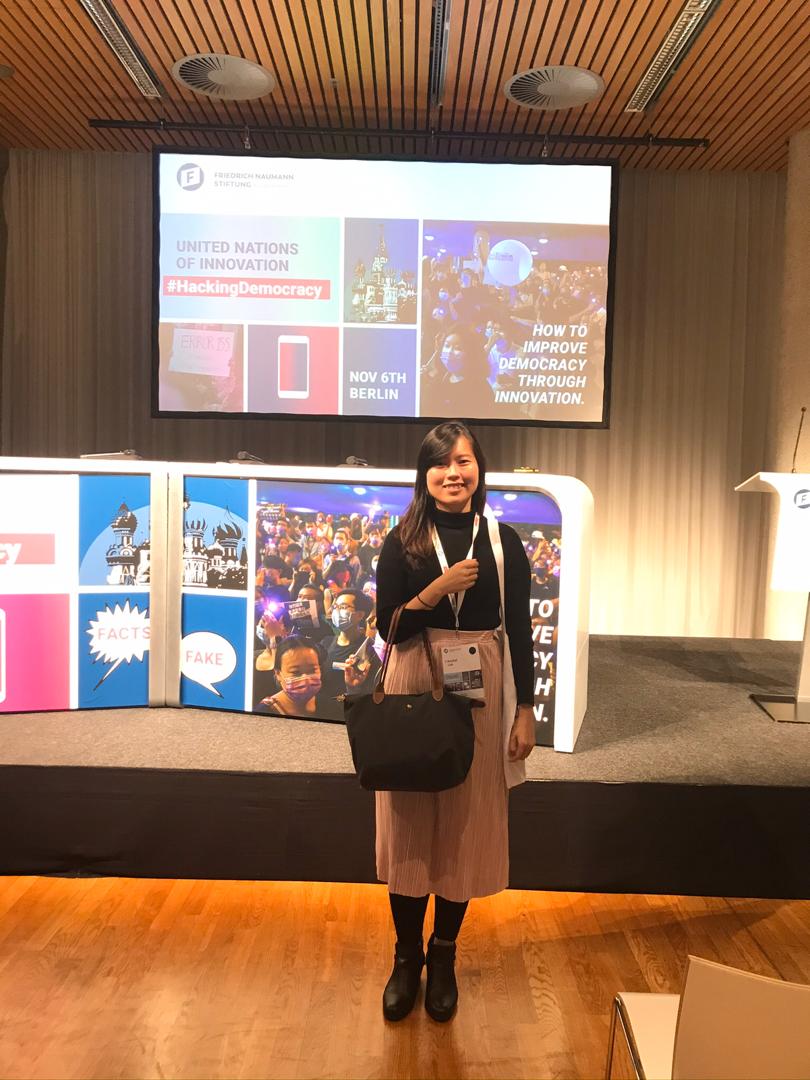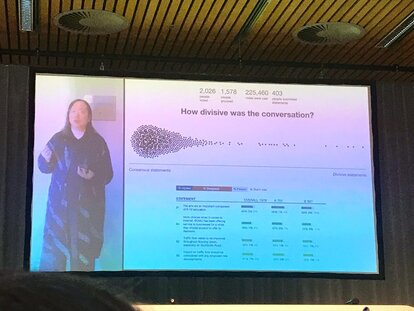Event
United Nations of Innovation: Making a Difference with Digital Democracy

Thank you Friedrich Naumann Foundation for the opportunity to attend the United Nations of Innovation #HackingDemocracy conference! The conference was held in Café Moskau, Berlin on 6th of November 2019 and brought together 200 people from all over the world to engage in discussions on how we can use technology to make liberal democracies more resilient.
My key takeaway from the conference was that both digital and physical spaces are extremely important to promote democracies and citizen participation. Through inspiring stories shared by the panelist and participants, I learned practical examples of how technology has enabled these digital and physical spaces to be built globally by multiple parties, from government, non-government organizations to private citizens looking to make a difference – I’ll share some of these examples below!

Audrey Tang, Minister of Digital from Taiwan opened the session, sharing with us how she has used technology to promote democratic participation in Taiwan. Some initiatives she has implemented include virtual townhalls, hackathons and open office sessions where citizens can pitch ideas to her on improving community life. Tang also shared about vTaiwan, an AI platform she supports, to analyse online discussions to identify “topics” or “statements” that are most debated. “The idea is that you can collect evidence from citizens and see which conversations are the most divisive or consensual” To prevent “trolls”, participants can agree or disagree with each other but they are not allowed to make personal attacks or directly reply to others comments. Another progressive initiative that she launched was a Regulatory Sandbox platform that allows innovators to amend rules or regulations, and entrepreneurs to experiment freely without legal constraints for a set amount of time.
Later, I sat in a fishbowl discussion about civic tech which explored how technology has enabled citizens to participate in democracies. Participants in the Hong Kong protests shared how they have used technology to communicate, share warnings in times of emergency, and vote on how the protestors should move about.
I also got to hear from a representative from G0V, a decentralized civic tech community from Taiwan. He started the discussion with an impactful statement – “instead of being unhappy with the government, we decided to get together to show how the government can do better.” They have run multiple local hackathons, bringing the community together to run projects that help the community participate in democracy. One of the projects they ran was to develop a budget visualization tool that helped citizens understand government spending. Another interesting project was a legislator’s voting guide that helps citizens gain more information about what legislators did in the past with quantitative approach and visualizations.
Representatives from Jokkolabs Senegal and Citylabs Berlin, emphasized the importance of having physical spaces for democratic participation in a digital world. They host open lab sessions, educational workshops and even community events for innovators to come together to hack problems.
In the final panel discussion, we heard from members of the Bundestag (German parliament) talk about how politicians used digital tools to communicate with their constituencies and get input to understand the will of the people. As a panelist aptly puts it, “Digital instruments cannot replace classic party structures, but it supplements it”.